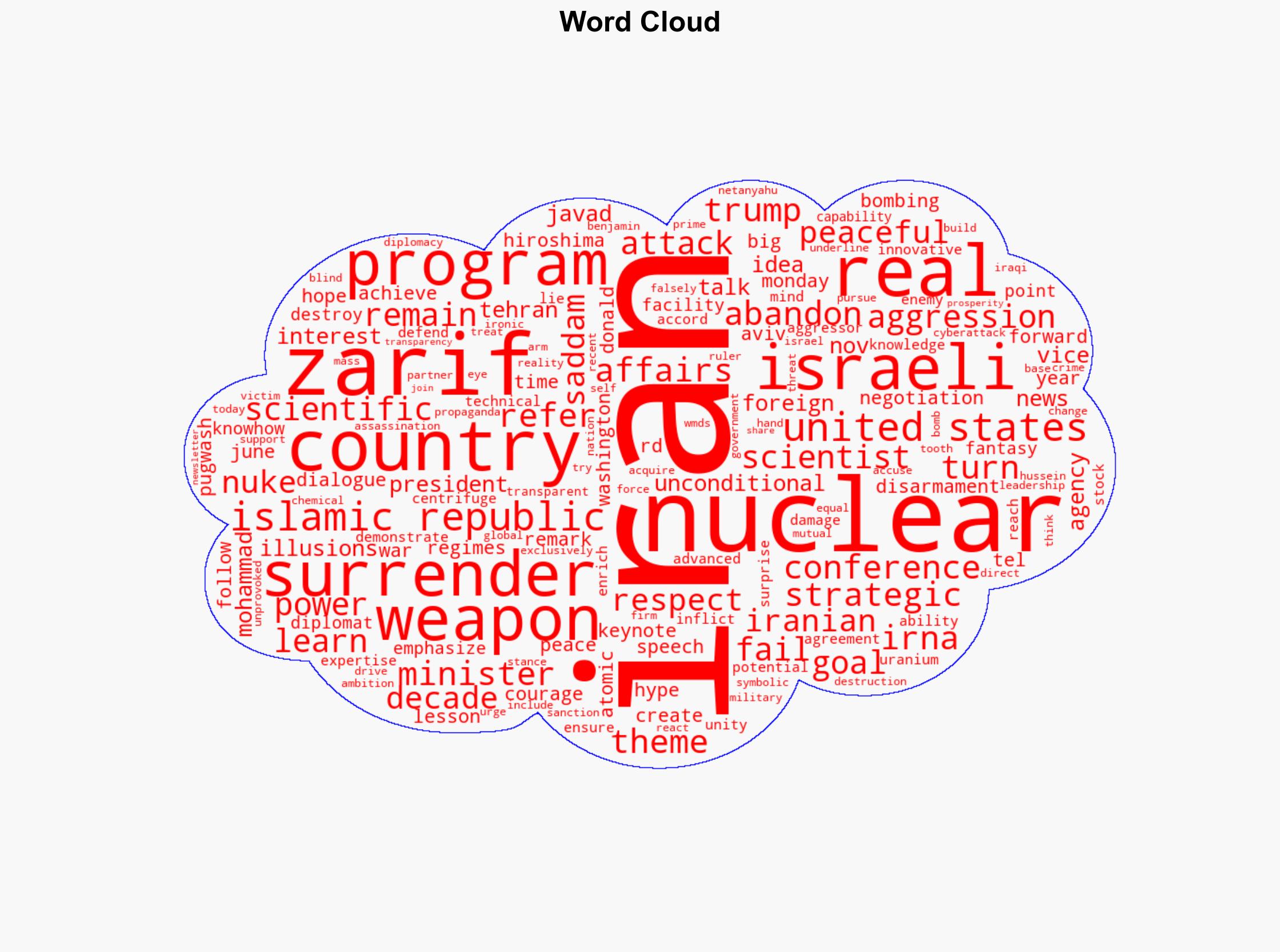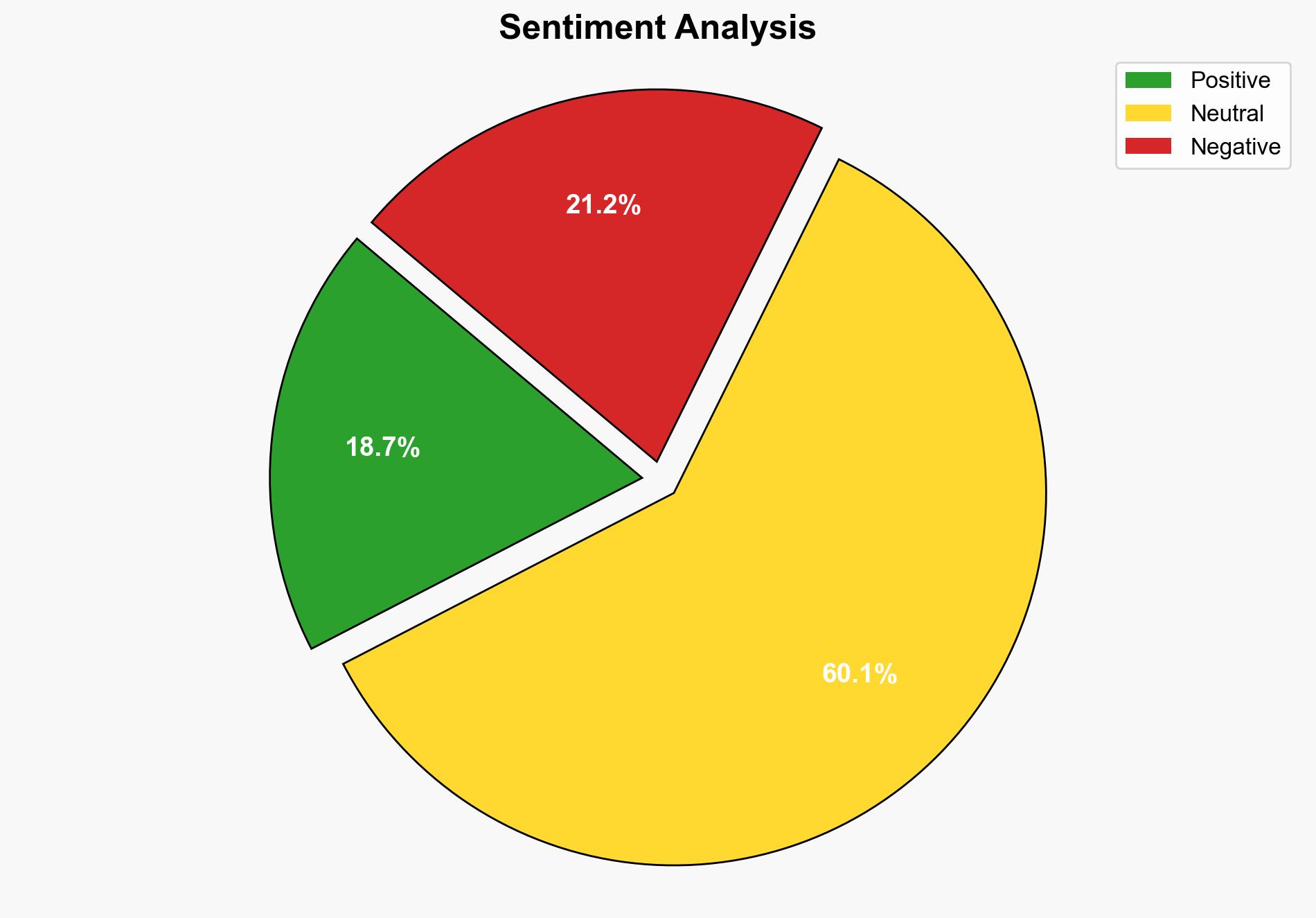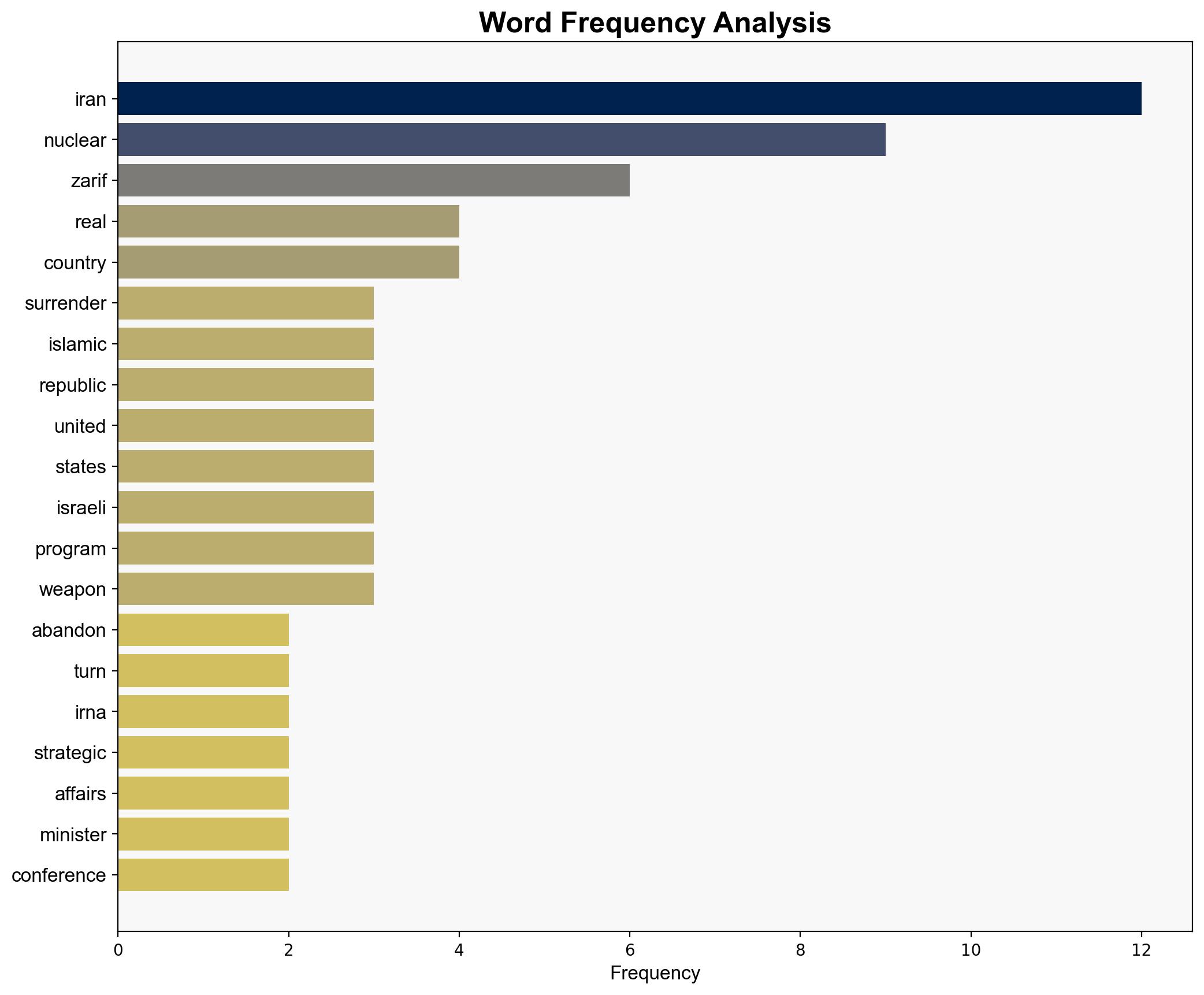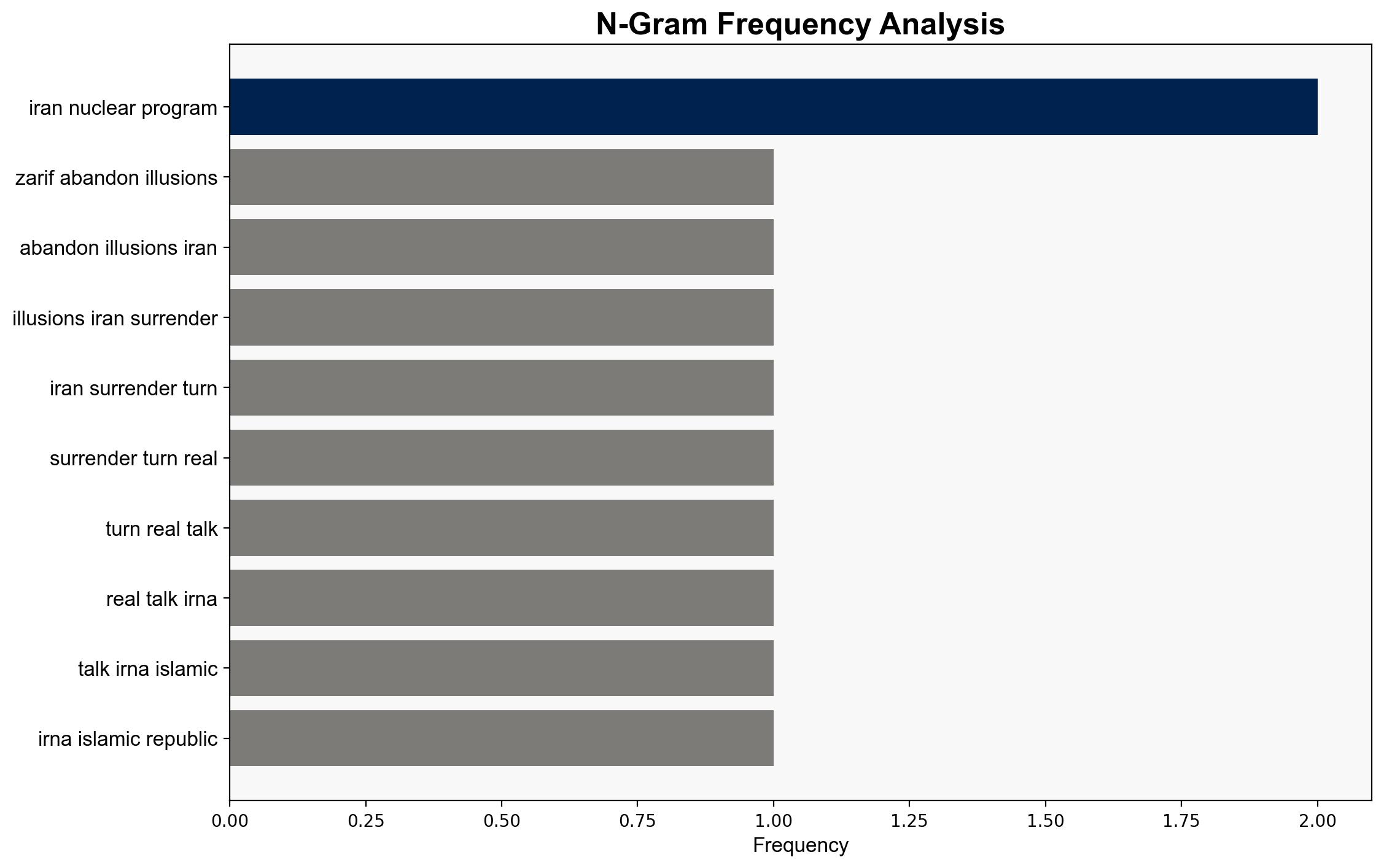Zarif US must abandon illusions of Iran’s surrender and turn to ‘real’ talks – Globalsecurity.org
Published on: 2025-11-04
Intelligence Report: Zarif US must abandon illusions of Iran’s surrender and turn to ‘real’ talks – Globalsecurity.org
1. BLUF (Bottom Line Up Front)
The most supported hypothesis is that Iran is positioning itself to strengthen its negotiating stance by emphasizing its scientific and technical capabilities, while rejecting any notion of surrender. Confidence level: Moderate. Recommended action: Engage in diplomatic efforts that acknowledge Iran’s scientific advancements and seek a mutually beneficial agreement, avoiding any rhetoric of unconditional surrender.
2. Competing Hypotheses
1. **Hypothesis A**: Iran is genuinely seeking a diplomatic resolution and is using its scientific advancements as leverage to ensure negotiations are on equal footing.
2. **Hypothesis B**: Iran’s statements are primarily for domestic consumption, aiming to project strength and resilience to its population while maintaining a hardline stance internationally.
Using ACH 2.0, Hypothesis A is better supported as it aligns with Iran’s historical pattern of using diplomacy to achieve strategic goals, and the emphasis on scientific knowledge suggests a readiness to negotiate from a position of strength.
3. Key Assumptions and Red Flags
– **Assumptions**: Both hypotheses assume Iran’s statements are reflective of its true strategic intentions. Hypothesis A assumes Iran values international legitimacy and economic relief over nuclear armament.
– **Red Flags**: Potential cognitive bias in underestimating Iran’s domestic political pressures. The absence of direct evidence linking Iran’s nuclear program to military ambitions remains a blind spot.
4. Implications and Strategic Risks
– **Economic**: Continued sanctions could exacerbate Iran’s economic challenges, potentially destabilizing the region.
– **Cyber**: Increased cyber activities targeting Iran’s nuclear infrastructure could escalate tensions.
– **Geopolitical**: Failure to engage in meaningful dialogue may lead to further regional isolation of Iran and increased influence of hardliners.
– **Psychological**: Perceptions of Western aggression could bolster nationalist sentiments within Iran, complicating diplomatic efforts.
5. Recommendations and Outlook
- Engage in multilateral talks that involve regional stakeholders to build trust and transparency.
- Scenario-based projections:
- **Best Case**: Successful negotiations lead to a comprehensive agreement, easing regional tensions.
- **Worst Case**: Breakdown in talks results in increased sanctions and potential military confrontations.
- **Most Likely**: Prolonged negotiations with intermittent progress, maintaining current status quo.
6. Key Individuals and Entities
– Mohammad Javad Zarif
– Donald Trump
– Benjamin Netanyahu
7. Thematic Tags
national security threats, cybersecurity, counter-terrorism, regional focus




